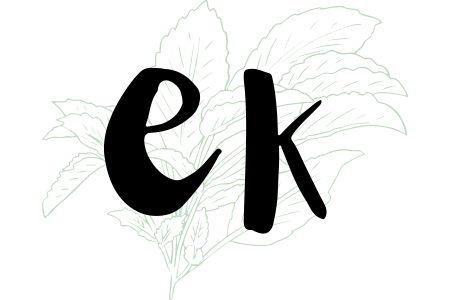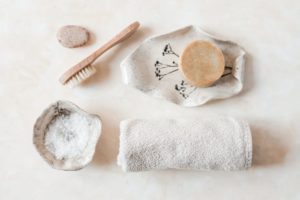What’s the big deal with Fair Trade Coffee? It’s not just another fad. Coffee is big business. Internationally, it’s the second-most in-demand commodity, just after oil. In the West, the daily consumption of coffee has paved the way for one of the world’s most massive industries.
Hand-in-hand with this demand for coffee is the abuse of forced labor and child slavery, the world over. This may leave a sour taste in the mouth for most people sipping their morning cuppa. However, it’s a reality many people are unaware of. According to the International Labor Organization, close to 250 million child slaves work to produce the coffee we drink, day in and day out.
That’s why making the choice to purchase fair trade coffee can make a significant difference in the ethical treatment of laborers across the globe.
If you’re looking to learn more about what fair trade means and some of the best coffees in this genre, we outline it all in this blog. We’ll also be answering the question of “what is fair trade coffee?” and why is it important? First, we dive into the best fair trade coffee options on the market!
Top 10 Fair Trade Coffee Brands: Best Fair Trade Coffee Reviews
If you’re looking to make an ethical difference to this massive global industry, choosing the best fair trade coffee is the best place to start. When choosing fair trade, you’re casting a vote for the fair and responsible treatment of laborers who work to produce your favorite daily beverage.
These 10 fair trade coffee brands have made it their mission to build mutually beneficial relationships with their farmers and their business.
If you’re looking for some of the best organic fair trade coffee, any of these brands is a good place to start:
1. Cafedirect
Based in London, United Kingdom, Cafedirect is one of the top players when it comes to the ethical production of coffee and business practices.
Their high-quality coffee is also award-winning, taking home more than 30 Great Taste Awards in the past 8 years. These fair trade coffee beans come from all over. Our favorite roast is the Machu Picchu, Peru blend.
Cafedirect is committed to building quality relationships with all their farmers, hosting face-to-face meetings with them each year. They have also made 90% of their farmers shareholders within the business. A third of their business profits are also circulated back to their producers and communities.
Cafedirect coffee can be bought online, worldwide.
2. Equal Exchange
Equal Exchange organic fair trade coffee, based in St. Paul, Minnesota, has been in the business of coffee for the past 25 years. Equal Exchange established a business that is fully worker-owned. Seen as pioneers of the fair trade movement within the coffee industry, Equal Exchange began this initiative when fair trade was still a fairly new concept.
They wanted to develop a business that concentrated on trading in a fair and honest way that empowers their farmers and consumers. Their solution to this was to make their business 100% worker-owned, with over 100 workers holding equal shares and voting rights in the business.
We love that they’ve gone the extra mile to create some of the best organic fair trade coffee on the market- putting environmental ethics at the forefront of their concerns as well.
3. Higher Ground Roasters
Trading out of Leeds, Alabama, Higher Ground Roasters is committed to growing and supplying the world with ethical, fresh coffee. This coffee company has dedicated its time to creating positive relationships with farmers, consumers, and beyond.
As such, they have established partnerships with non-profit initiatives such as The Appalachian Trail Conservancy, Black Warrior Riverkeepers, and Cahaba River Society. In collaboration with these initiatives, Higher Ground works to produce ethical coffee, while protecting important wild areas.
Higher Ground roasts only 100% organic, fair trade, and shade-grown coffee beans. Their products can be bought online and sampled throughout Alabama. We also love their fair trade coffee subscription which comes in different amounts to suit your coffee needs!
4. Grumpy Mule
Also based in London, United Kingdom, Grumpy Mule offers a playful coffee brand, wholly focused on long-term standards of sustainability and ethics. These long-term standards help them to ensure each and every brew of coffee is a conscious, sustainable one.
With sourcing standards focused on longevity, Grumpy Mule has worked to earn a fair trade, Rainforest Alliance, and organic certifications. To add to this, they offer great advice on the best brewing standards for your best cup of Joe, each and every brew.
Our pick from them is their organic fair-trade espresso beans, which contain hints of fruit and dark chocolate.
5. DOMA
Operating out of Post Falls, Idaho, DOMA is an official member of Cooperative Coffees. They have made a bold commitment to placing their farmers, their identity, and production methods at the center of all their operations. DOMA is 100% committed to the sustainable production of coffee through its roasting methods and fair trade, direct relationships.
They use an eco-friendly coffee roaster, which works to conserve 80% natural gas, versus the gas consumed by traditional roasters. As the company has grown, they have formed significant relationships with non-profit organizations and communities in a bid to give back.
Our two favorite options from them are their regular Chronic brew, linked above, with walnut, chocolate, and spice. For a richer, sweeter option, try out Carmela’s.
6. Stumptown Roasters
Stumptown Roasters are originally based in Portland Oregon but have grown to include cafes in Los Angeles, New York, Seattle, and New Orleans. This coffee company has actually worked to shape the Portland coffee scene into what it is today with thanks to its approach to quality.
Their approach to ethics has helped to set them apart as true leaders in the business of fair trade coffee production. Stumptown utilizes direct trade sourcing in all its operations, emphasizing a clear focus on developing relationships with transparency.
No longer a mere coffee start-up with a conscience, this company has grown to stand loud and proud in its ethical approach to coffee production. Being in the Pacific Northwest, we’re a little biased. So we chose this as our EcoKarma Favorite when it comes to the best fair trade coffee!
7. Conscious Coffees
Boulder, Colorado is home to Conscious Coffees who have established themselves as a certified B Corporation. Conscious Coffees buy only organic, fair-trade coffee produced on family farms collectively organized into cooperatives of their own.
Conscious Coffees is focused on creating long-term, sustainable relationships with its suppliers and customers. They also aim to spread the message of the social and environmental impact of growing, harvesting, processing, roasting, and trading coffee.
Conscious Coffees offer detailed coffee descriptions and brewing tips on their website. This company truly fulfills its obligation to complete the circle from farmer to consumer.
8. Pura Vida Coffee
Based in the hamlet of Tukwila, Kings County, Washington, Pura Vida Coffee is one of the first coffee brands to ever sell fair trade coffee exclusively. Since its inception, the company has grown to include shade-grown and organic practices throughout its product line.
Pure Vida Coffee is also focused on reducing its carbon footprint wherever possible. They have established their own non-profit organization dedicated to supporting children through education and health initiatives.
9. Salt Spring Coffee
Salt Spring Coffee is a family-owned company, comprised of pioneers within the industry. Operating out of Richmond, British Columbia, they have forged long-lasting, meaningful relationships with all their farmers. They are Fair for Life certified which ensures human rights are at the forefront of all stages of production.
They are a B corporation with a strong focus on giving back to the planet by doing the following:
- recycling
- composting
- exceeding the limits of efficiency
Salt Spring Coffee brews some of the highest grade coffee in the industry. They focus on taste as much as fair-trade wherever possible.
10. Allegro Coffee
Fair trade coffee roasters seem to have a thing for Colorado! Operating out of Thornton, Allegro Coffee ensures all farmers and workers receive fair pay and work under fair conditions. These fair trade coffee pioneers grow their coffee organically, guaranteeing a 100% non-toxic product.
In combination with their focus on fair trade, Allegro Coffee still honors artisanal traditions of coffee brewing. As such, their coffee is some of the most delicious on the market today. You can find this coffee brand in Whole Foods stores throughout the U.S. or online internationally.
Coffee Basics
Coffee beans are erroneously categorized as a bean. Their physical appearance is the only resemblance they have to true beans. They are actually the seed of a coffee plant. The coffee plant is a member of the plant family Rubiaceae. Caffeine is found within the coffee bean and the intended use of this is part of the plant’s natural defense system against herbivores.
As with tea in many parts of the world, there are a number of Western nations who have fallen in love with coffee and some may even say addicted. Truth be told, there are much worse things to develop habits for. Coffee culture has certainly become a part of many individuals’ day-to-day.
Interesting Coffee Facts:
- 45% of the world’s total exported coffee comes from South American (mostly in Brazil)
- The first known cultivation of coffee occurred in India in the 1600s
- Americans consume about 400 million cups of coffee a day
- The first roasted beans sold retail in Pittsburgh in 1865
- About 75% of coffee produced worldwide is the Arabica variety
What is Fair Trade Coffee?
What exactly is the definition of fair trade and how does it work to protect the rights of laborers across the globe? More specifically, what is fair trade coffee? Fair trade is defined as a trading partnership based on transparency, and respect. It creates a dialogue that ensures greater equality in international trade.
To add to this, fair trade also aims to contribute to sustainable development. Companies offer better working and trading conditions and secure the rights of workers worldwide in order to achieve this goal. Fair trade organizations across the globe are committed to these principles and value them as the core of their business.
These organizations are supported by their consumers and consistently work to raise awareness of supporting their producers, campaigning for their rights.
Beyond the Products
It’s important to note that fair trade is far more than mere trading. It proves that greater justice in international trade is possible. Fair trade works to highlight the need for change in business practice and conventional trade. It also shows that successful businesses can put their people first.
Essentially, this movement is a tangible contribution to the fight against worldwide poverty, climate change, and economic crisis.
Looking to Live More Sustainably?
At Eco Karma, we offer you a path to live a life focused on reducing your carbon footprint and living more sustainably. Choosing to make decisions that support local economies, and ethical business practices are in the same vein as environmental ethics.
If you’re looking for tips on where to buy fair trade coffee, how to reduce waste, or how to harness renewable energy, we offer it all. Our goal is to help you learn about how you can give back to the planet with a few simple changes.
















